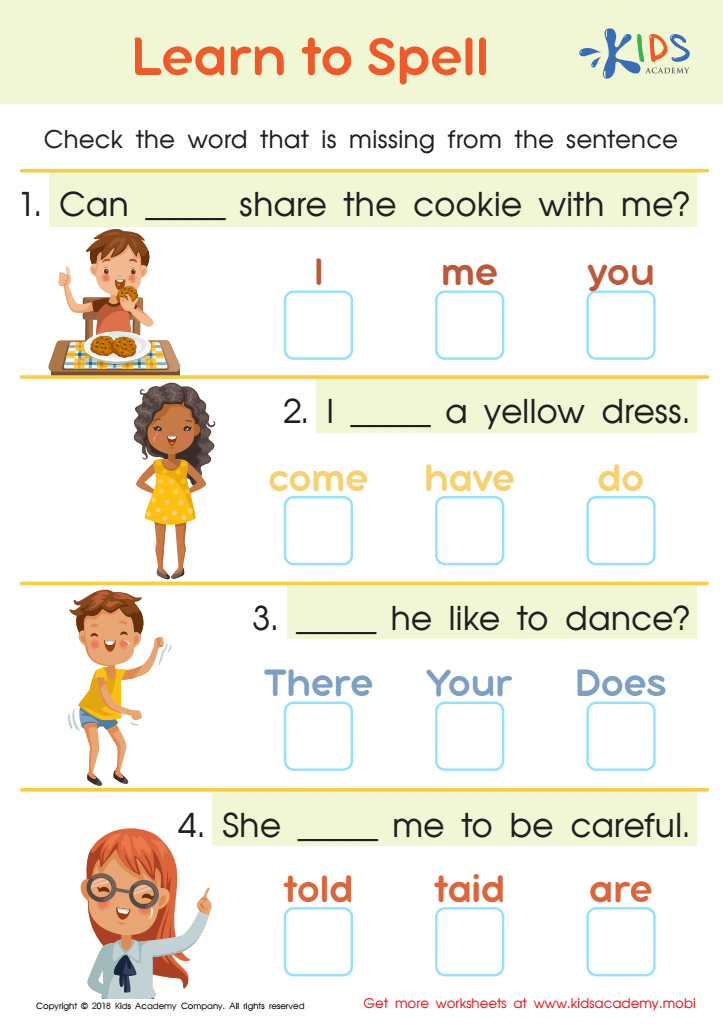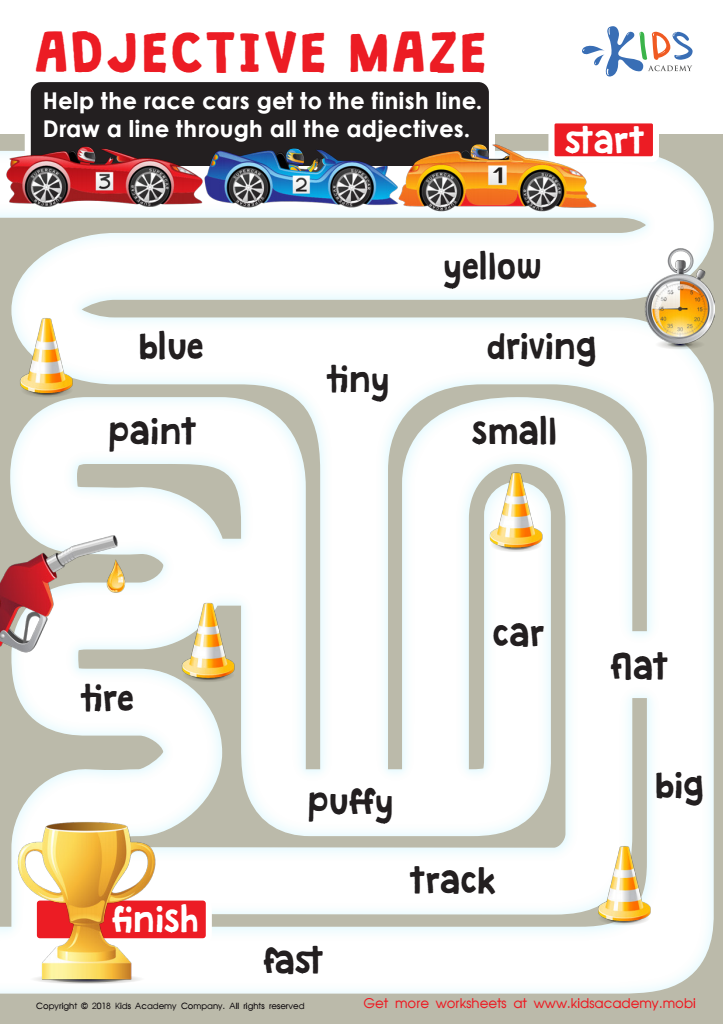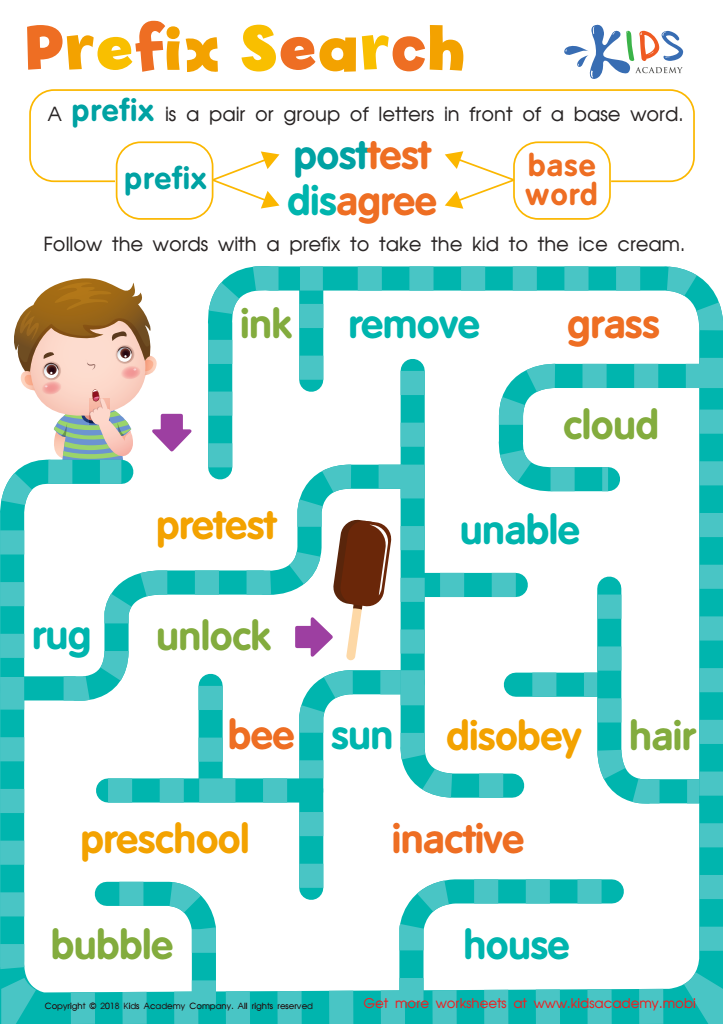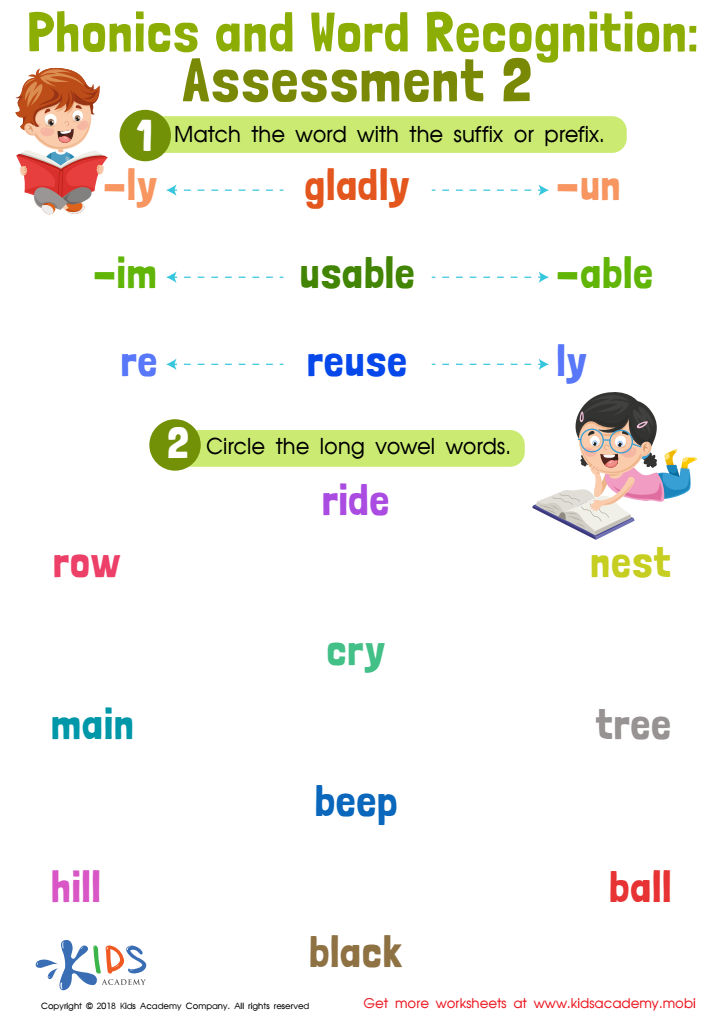Word identification Writing Worksheets for Ages 7-9
7 filtered results
-
From - To
Boost your child's writing skills with our engaging Word Identification Writing Worksheets designed for ages 7-9. These thoughtfully crafted worksheets make learning fun, targeting key language skills through activities that enhance vocabulary, spelling, and comprehension. Our resources combine colorful illustrations and interactive exercises, ensuring that kids remain motivated and excited to learn. Tailored to meet educational standards, these worksheets help young learners confidently identify and use new words in their writing. Perfect for home or classroom use, they provide invaluable practice for developing critical reading and writing proficiency. Equip your child for academic success today!


Learn to Spell Worksheet


Adjective Maze Worksheet


Phonics and Word Recognition: Assessment 1 Worksheet


Reading: Prefix Search Worksheet


Phonics and Word Recognition: Assessment 1 Worksheet


Phonics and Word Recognition: Assessment 2 Worksheet


Phonics and Word Recognition: Assessment 2
Word identification and writing skills are crucial for children aged 7-9, a developmental stage where foundational literacy skills become solidified. At this age, children's cognitive abilities are expanding rapidly, and the skills they develop set the groundwork for future academic success.
Effective word identification, such as recognizing common words quickly and correctly, directly influences reading fluency. When children can identify words effortlessly, they can focus on comprehending the text, enhancing their overall reading experience. As comprehension improves, so does the ability to grasp more complex ideas and vocabulary. This fluid integration of reading and comprehension significantly impacts other academic areas, including science and social studies.
Writing skills, closely linked to reading, offer children a means to express their thoughts coherently. Writing sharpens their understanding and memory of words, reinforcing what they learn during reading. Moreover, it fosters creativity and critical thinking. When children write, they learn to organize their ideas logically, making their communication effective.
Furthermore, early confidence in literacy promotes a positive attitude towards learning and school in general. Struggles in word identification and writing, however, can lead to frustration and a negative association with learning. Therefore, parents and teachers must nurture these essential skills through engaging and supportive practices to ensure children become competent and enthusiastic lifetime learners.
 Assign to My Students
Assign to My Students





















